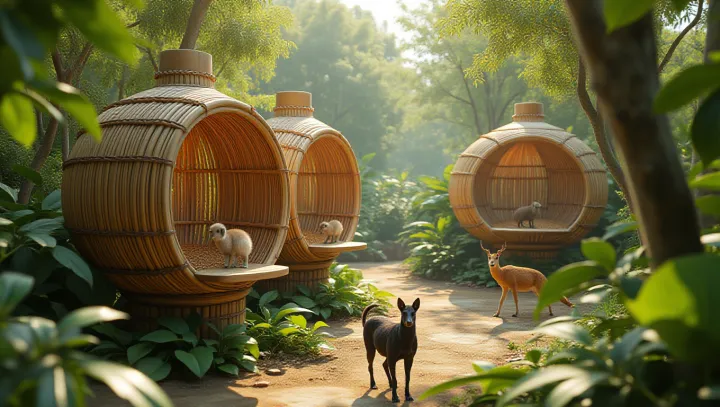Bamboo Feeder Sparks Ecological Change

In Sichuan Province, renowned for its lush bamboo forests and diverse wildlife, a new initiative is making waves in the world of conservation. At the heart of this transformative project is the bamboo feeder, a simple yet revolutionary tool that is reshaping how giant pandas, the region's iconic inhabitants, interact with their habitat. The bamboo feeder was devised by Dr.
Chen Wei, a leading ecologist from the Chengdu Research Base of Giant Panda Breeding. Her team combines traditional weaving techniques with ecological science, creating feeders that mimic natural bamboo growth patterns. The feeders aim to improve nutritional intake by encouraging natural feeding behaviors, vital for the pandas' digestive health and energy levels.
By bolstering the health of the pandas, the bamboo feeders are indirectly supporting entire ecosystems. Healthy pandas have energy to roam and forage, leading to healthier forests as their movements help disperse seeds and promote forest regeneration. This symbiosis underscores the broader ecological impact of Dr.
Wei's project. While the initiative primarily targets captive pandas in sanctuaries, the long-term goal is to integrate bamboo feeders into wild habitats, offering a sustainable solution to the challenges of habitat fragmentation. As the project gains traction, experts worldwide are keen to observe its impacts on panda populations and biodiversity conservation strategies.
This initiative also highlights the importance of local initiatives in global conservation efforts. By merging local craftsmanship with scientific research, the bamboo feeder project emphasizes how small-scale, locally-driven innovations can lead to significant ecological benefits, prompting a re-evaluation of traditional conservation approaches.
